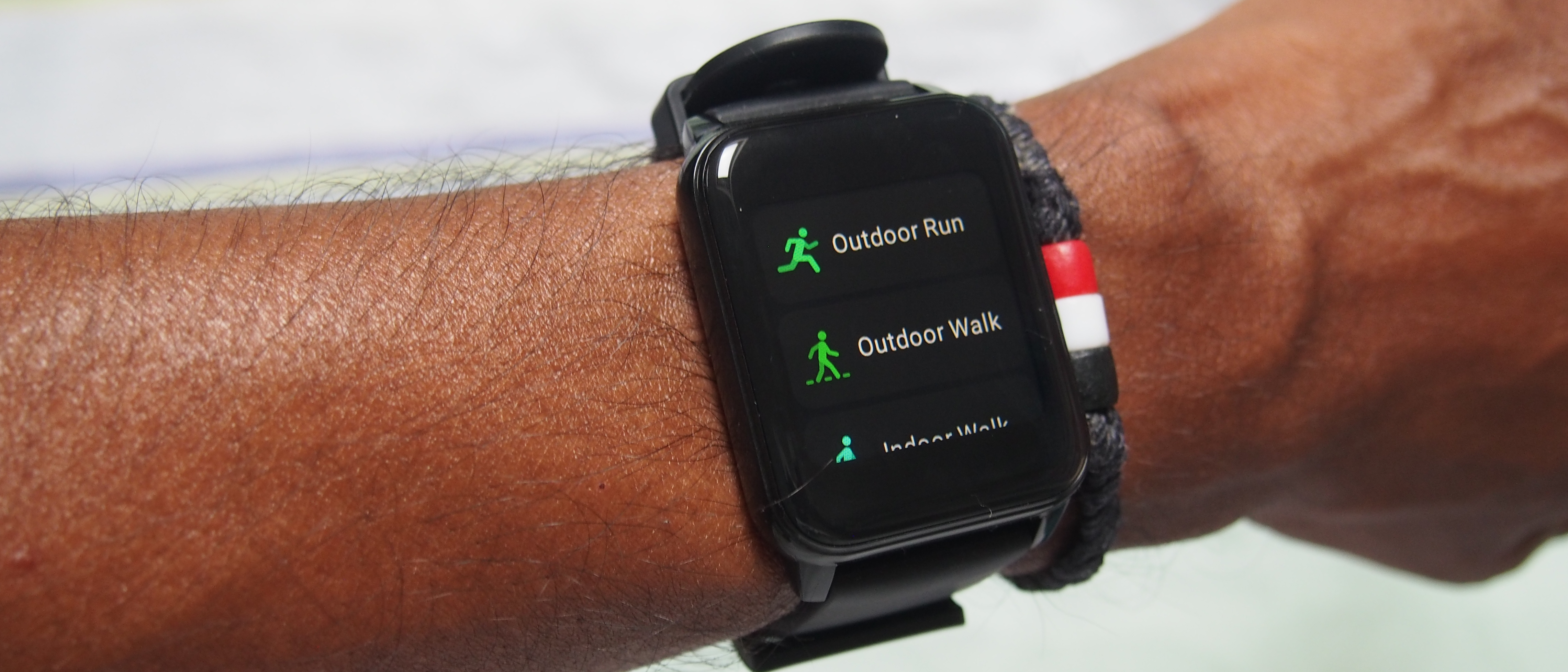TechRadar Verdict
The Realme Watch 2 slightly tweaks the look of its budget smartwatch but the big changes here are the improvements made in the battery department, which now means it can more comfortably get you a week of watch time. While it might not be the best budget smartwatch available around this price, it does offer another solid option to consider.
Pros
- +
Nicer screen
- +
Solid fitness tracking
- +
Good watch face options
Cons
- -
Not great for sports tracking
- -
Bit of a drab look
- -
Largely same software features as first Watch
Why you can trust TechRadar
Two-minute review
The Realme Watch 2 is the follow-up to the Realme Watch, which launched in 2020 and firmly fits the cheap smartwatch profile.
Now compatible with both Android and iOS devices, the Watch 2 sticks to a square design but now has for a more rectangular look. The screen is the same size and resolution, but feels like a step up in quality overall.
Features-wise, not a huge deal has changed. As a smartwatch, you can view notifications, control your phone camera, access music controls and view weather updates. As a fitness tracker, you can track your heart rate, measure blood oxygen levels and track sleep.
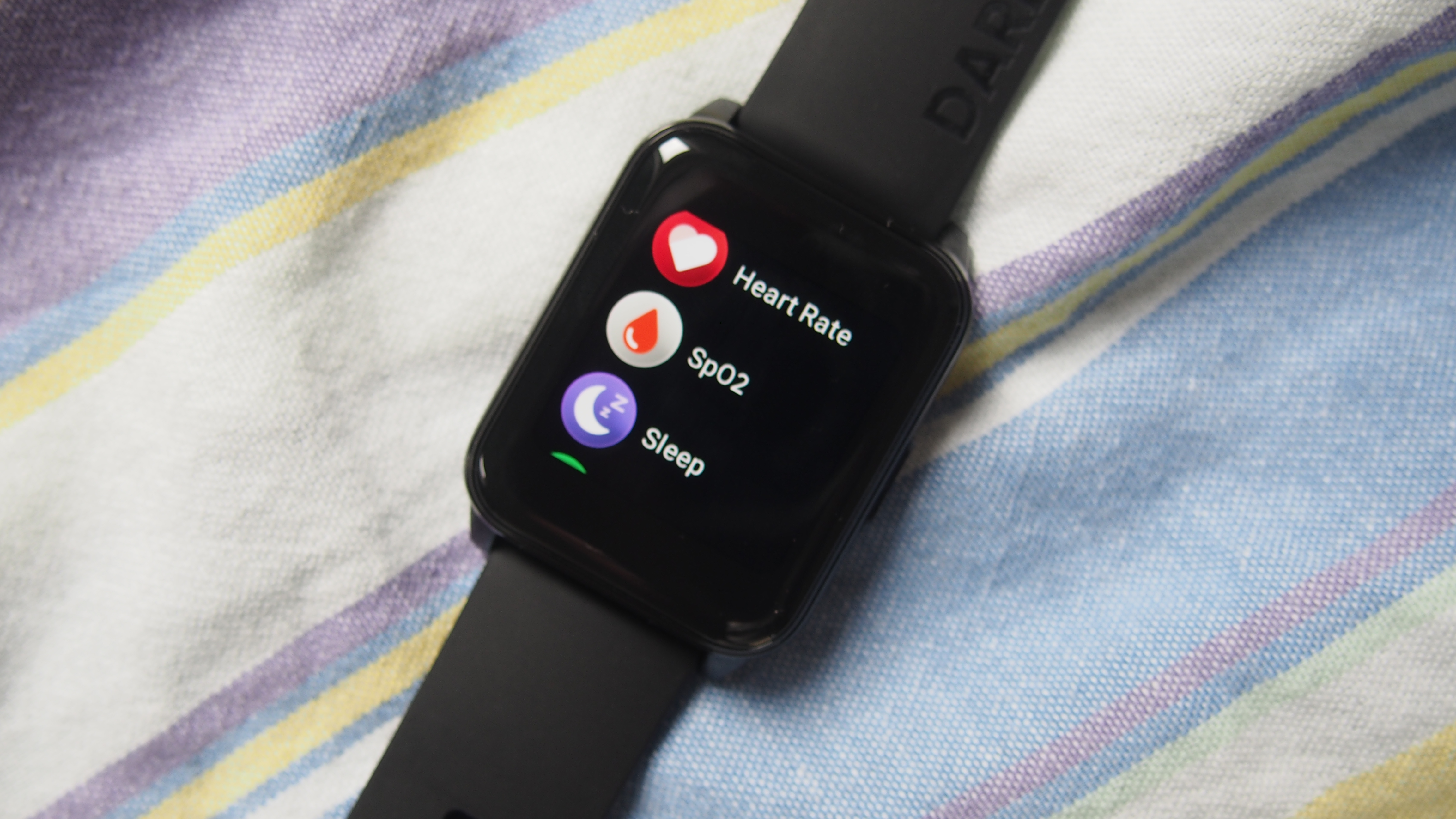
There’s no built-in GPS still, but you do have connected GPS support to help accurately map outdoor exercise and activities. Realme has increased the number of dedicated sports modes from 14 to 90, though our experience of tracking workouts is very similar to the original. It definitely performs better as a basic fitness tracker.
Improvements have been made in the battery department; Realme now promises well over a week of time in between charges, and in our tests the watch proved capable of delivering that.
With the battle of the cheap smartwatches starting to hot up, the Watch 2 holds up reasonably well against the competition. You will though find more compelling sports tracking and design flourishes on something like the Amazfit Bip U Pro and the Xiaomi Mi Watch Lite.
Realme Watch 2 price and release date
The Realme Watch 2 launched in May 2021 and is priced at $45 / £49.99 / AUS$169.
Design and display
- 1.4-inch, 320 x 320 colour touchscreen display
- 22mm interchangeable straps
- IP68 water resistance rating
The first Realme Watch was a small, light, square device, and while Realme hasn’t rung the changes here, it does sit a little differently on your wrist.
It’s swapped the blocky square plastic case for a rectangular one, though essentially you’re still getting plenty of bezel above and below the touchscreen display that sits front and centre. It’s a 35mm case, so technically smaller than the one on the original and at 12.2mm thick, it’s slightly chunkier too. It also jumped in weight from 31g to 38g. Ultimately though, these aren’t the kind of dimension changes you really notice. It’s still a light watch to wear, but just a very plain plastic watch to look at.
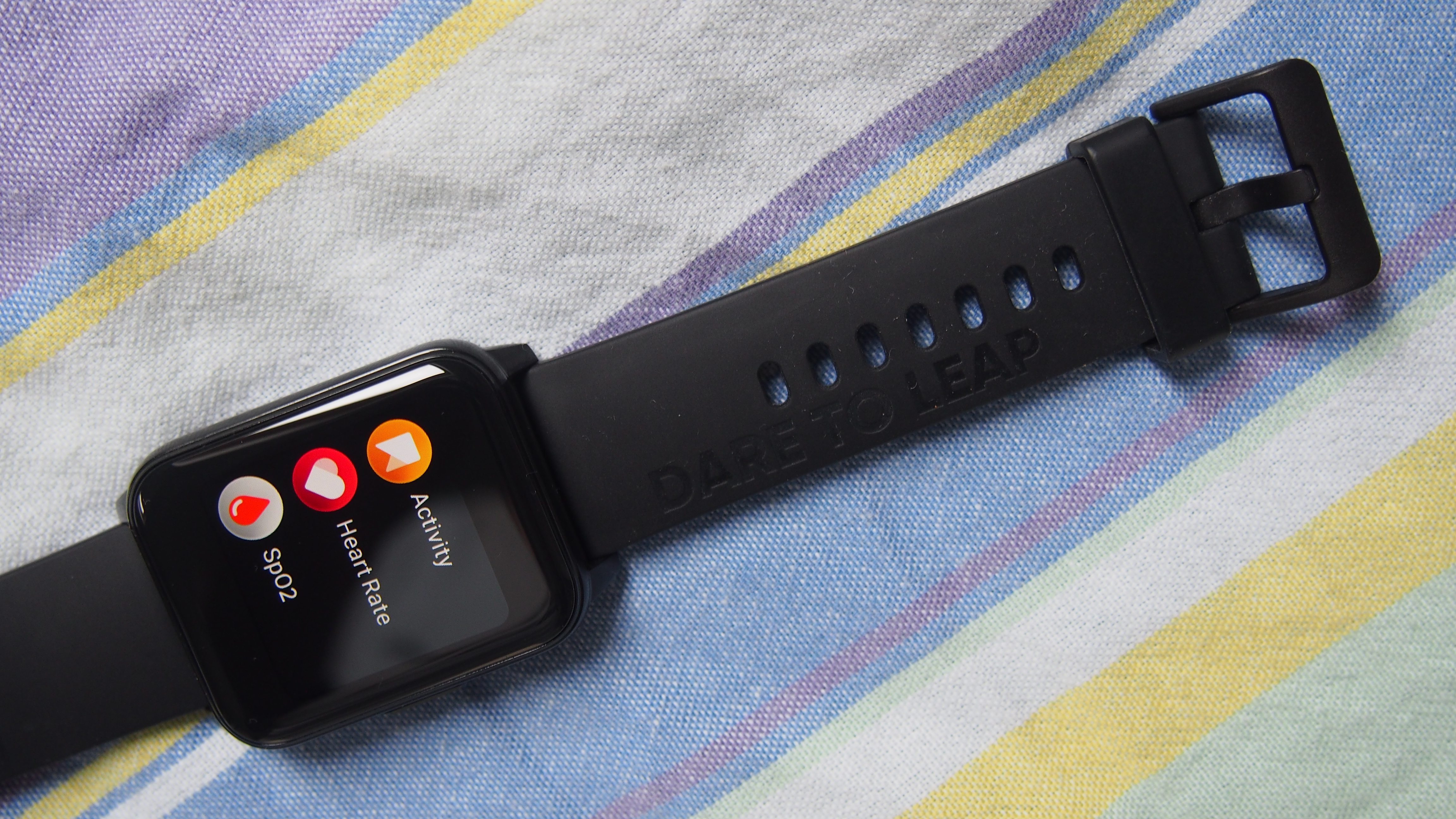
That watch case is now matched up with a larger 22mm silicone strap that can be removed via a simple pin mechanism on the back of each part of the strap. It looks like it’s currently only available in the black strap option we had to live with with little talk of the fashion straps it promised with its predecessor. It’s a comfortable strap nonetheless, and didn’t cause any skin irritations or give us a reason to take it off.
The only times we did have to take it off was before getting in the shower or going for a swim. That’s because Realme has stuck with the same IP68 water resistance rating, which means it’s still only good for keeping on when you’re washing your hands.
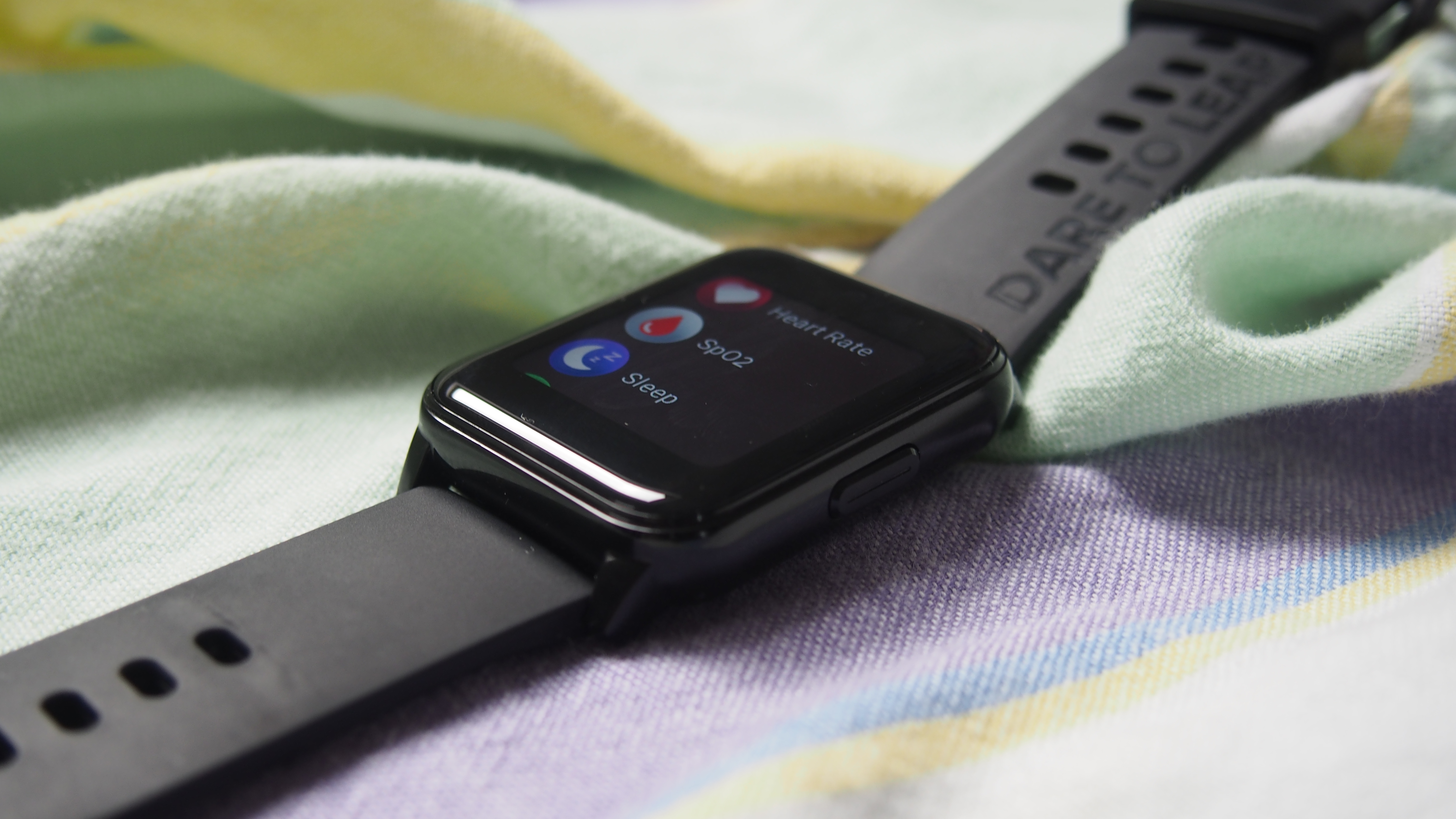
There’s still just one physical button on the right side of the case, which loses the red etching featured on its predecessor and is used to to wake up the watch or held down to power off or restart the watch.
It’s the touchscreen display you’ll have to interact with and as mentioned, it’s fighting for space with the generous bezel in place here. Realme suggests this matches the 1.4-inch, 320 x 320 colour touchscreen display featured on the first Watch, but it definitely feels like an improved screen to us.
The colors feel less washed out, it feels sharper and brighter, and visibility indoors and outdoors is good as well. Crucially, the responsiveness of the screen is better too, which was something we were critical of on the original. It’s not an always-on screen, so if you want to check in on tracking stats or the time, you’ll need to reach for that physical button.
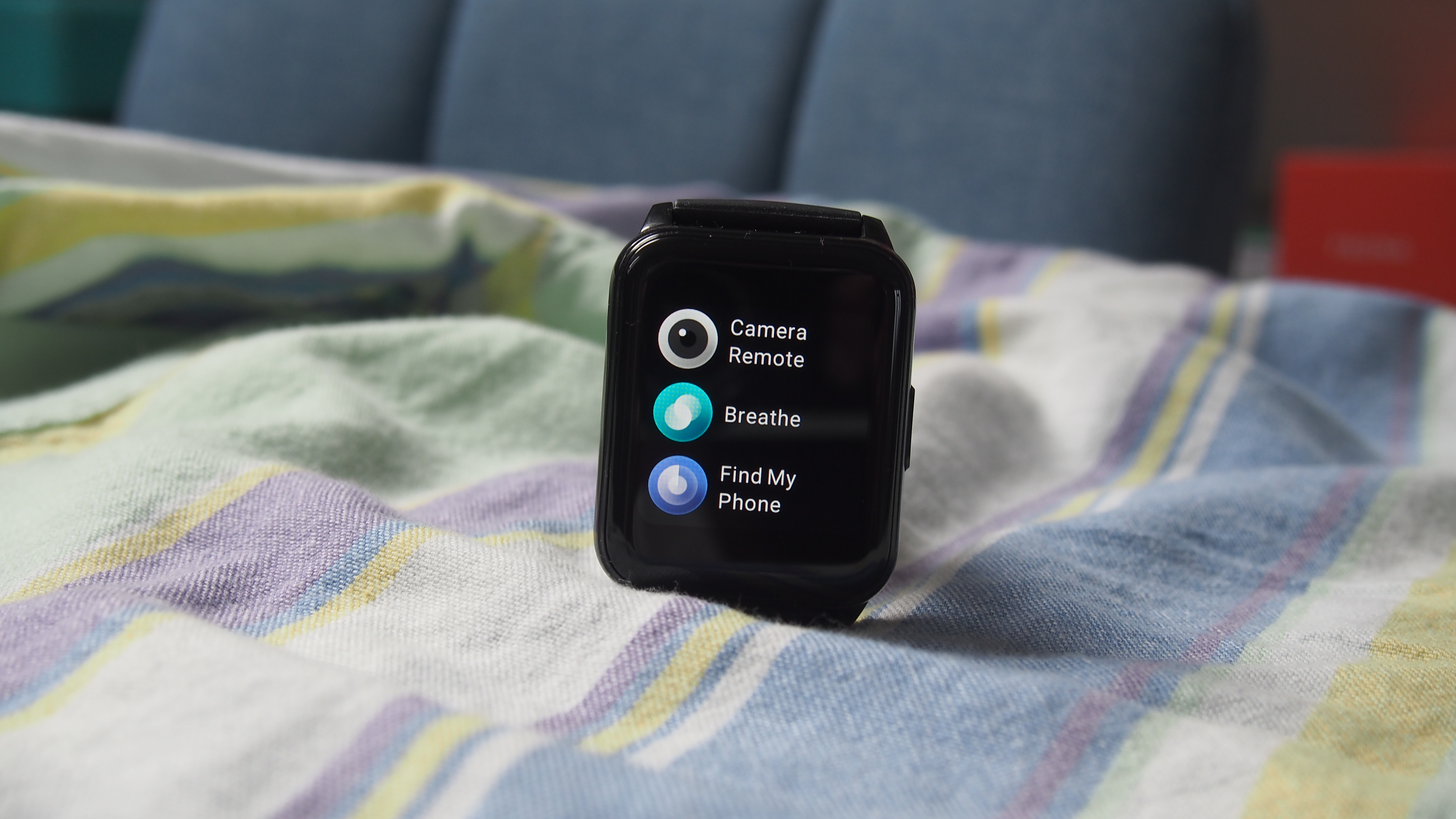
Ultimately, it’s not a stunning-looking connected timepiece by any stretch of the imagination. For the money, it’s a neat and tidy, predominantly plastic watch that does feel well built and now offers a better touchscreen to interact with. It’s been comfortable to wear 24/7 including getting sweaty with it for exercise, and delivers in most of the key departments.
Performance and software
- Works with Android phones and iPhones
- View notifications
- Music playback controls
Realme sticks to its own proprietary smartwatch operating system, but while the first Watch was an Android-only affair, that’s changed for the Watch 2. It’s also compatible with iPhones running iOS 6.0 and above.
Our time though was spent testing it paired to a Realme Android phone and that experience on the whole was good. Again, Realme hasn’t shared details on the kind of processing power or memory on board here, but it certainly didn’t feel as sluggish as the first Watch. It was more responsive to taps and swipes and there wasn’t any noticeable lag. It still doesn't deliver the kind of buttery smooth transitions we’d like to see, but things have improved.
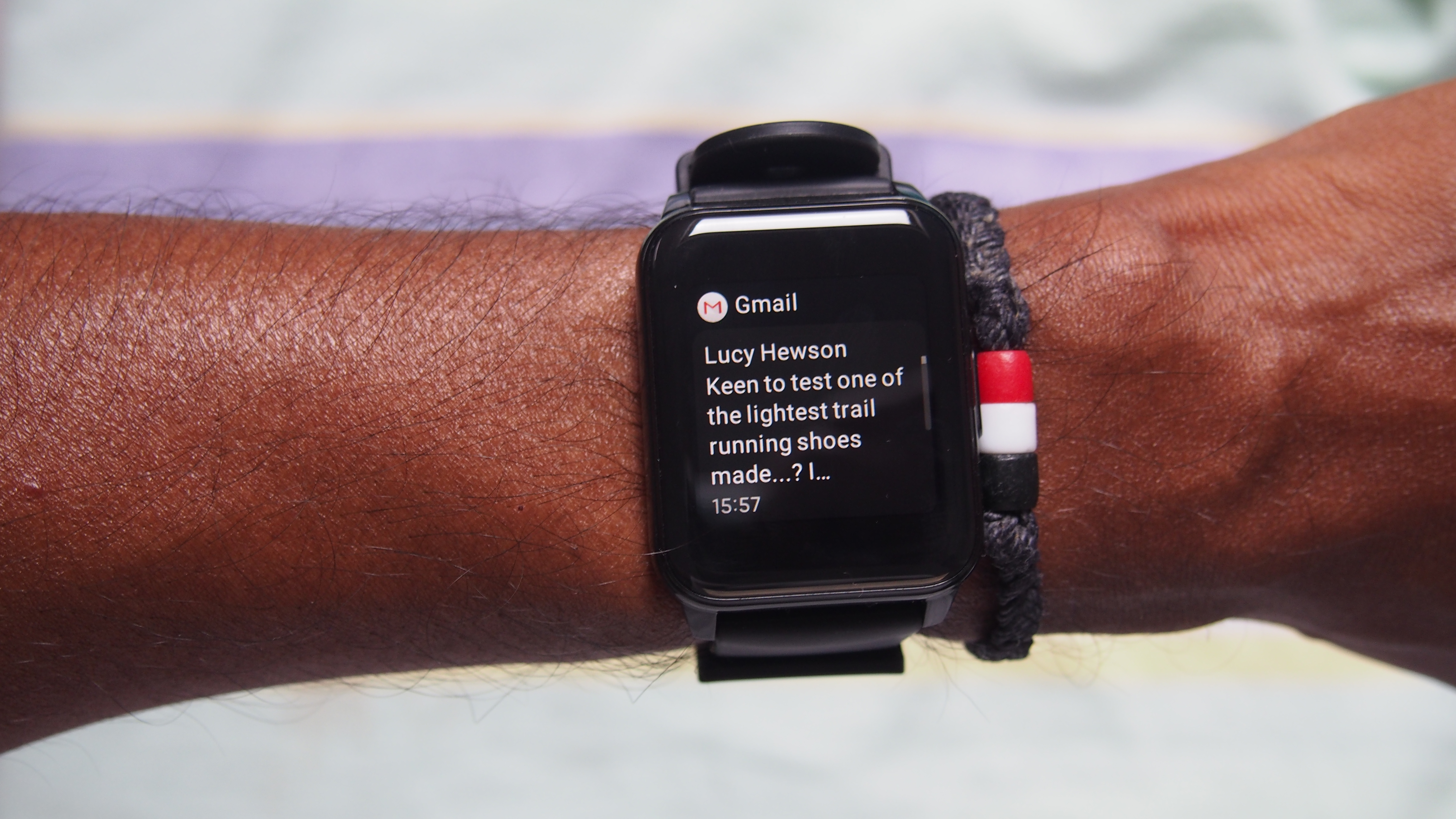
Getting around the watch is pretty much the same as before. Swipe down to see your notification stream and swipe up to see modes that are at your disposal. You can also swipe left on the screen to see widgets for activity tracking, heart rate and weather. Press down on the watch screen and you can change up watch faces with a nice collection already installed on the watch and available to sync over from the Realme companion app.
In terms of smartwatch features, the key one here is the notification support. Small app icons will help you quickly identify the source of the notification but you can’t respond or act on notifications. Notifications from apps like Gmail give you the subject line but you’ll need to reach for your phone for more. It can display entire WhatsApp messages but you’re not going to get any visuals that get dropped into your chats.
The new-look weather widget is nice to glance over, the music controls work well with apps like Spotify and the camera controller works once you’ve switched it on in the Realme Link app. There is the promise of letting you control Realme smart home devices from your wrist, though we didn’t have any of that connected kit to test it out with.
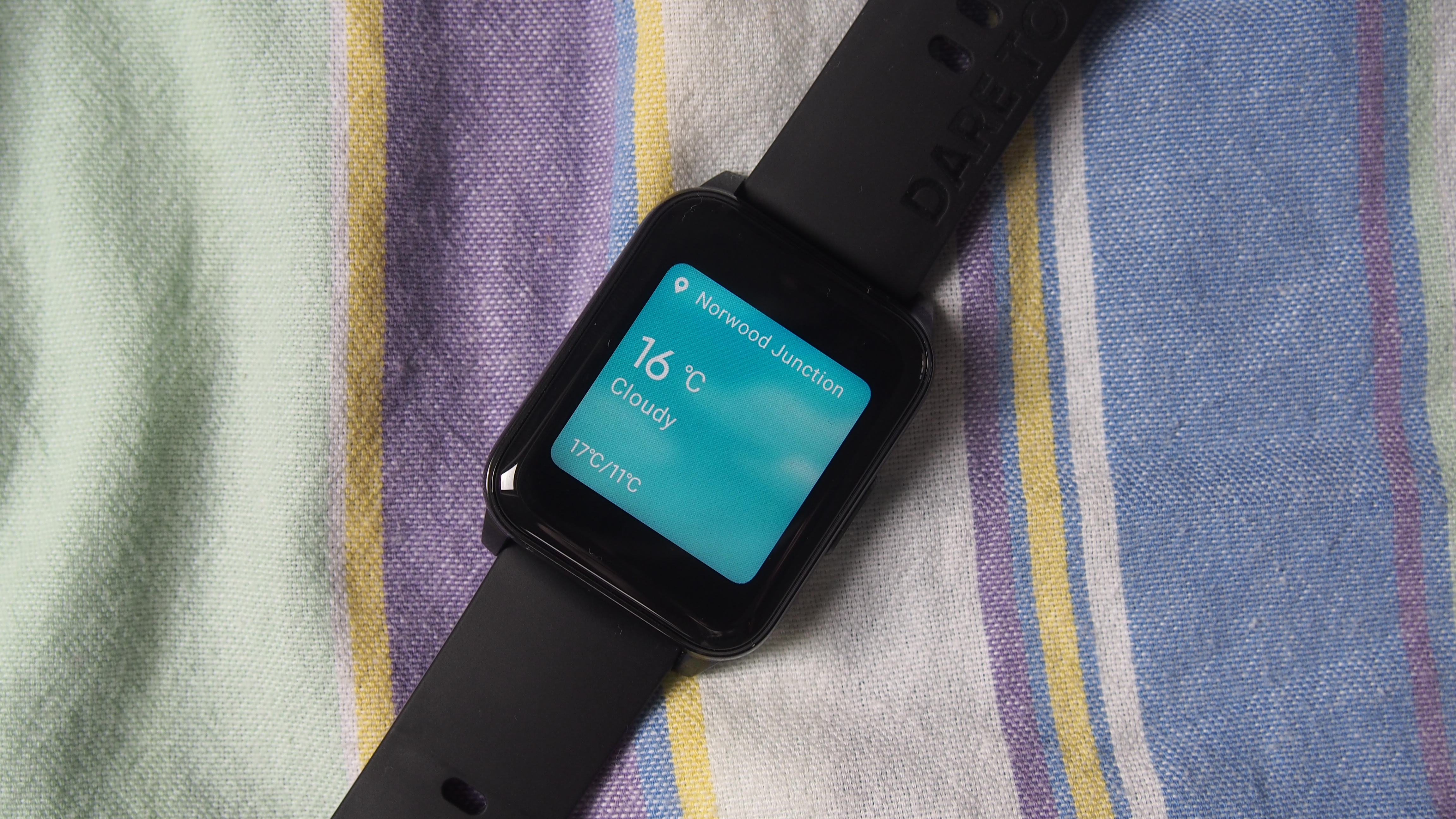
You’ll need the Realme Link smartphone app to set up the watch and adjust settings. This acts as the place to check in on your fitness stats, access the watch face gallery and set up smartwatch features like notification and call reminder support. It’s a pretty basic app to get around and toggle settings on and off, which was absolutely fine with us.
Outside of Realme’s own app, you can sync workout data to Google Fit, but that’s as far as the third party app integration goes currently.
Fitness tracking
- 90 sports modes
- Continuous heart rate monitoring
- SpO2 sensor
- Connected GPS
Like most smartwatches these days, helping you keep tabs on your fitness and overall health is a big play for the Realme Watch 2, though not a huge amount has changed from the first Watch on that front.
We’ll start with the sensors you have at your disposal, which once again, gets you a pretty standard three-axis accelerometer motion sensor along with an optical heart rate monitor to continuously monitor heart rate and track heart rate during exercise. There’s also a blood oxygen sensor, but you can’t continuously monitor blood oxygen levels. It’s all about on-the-spot measurements.
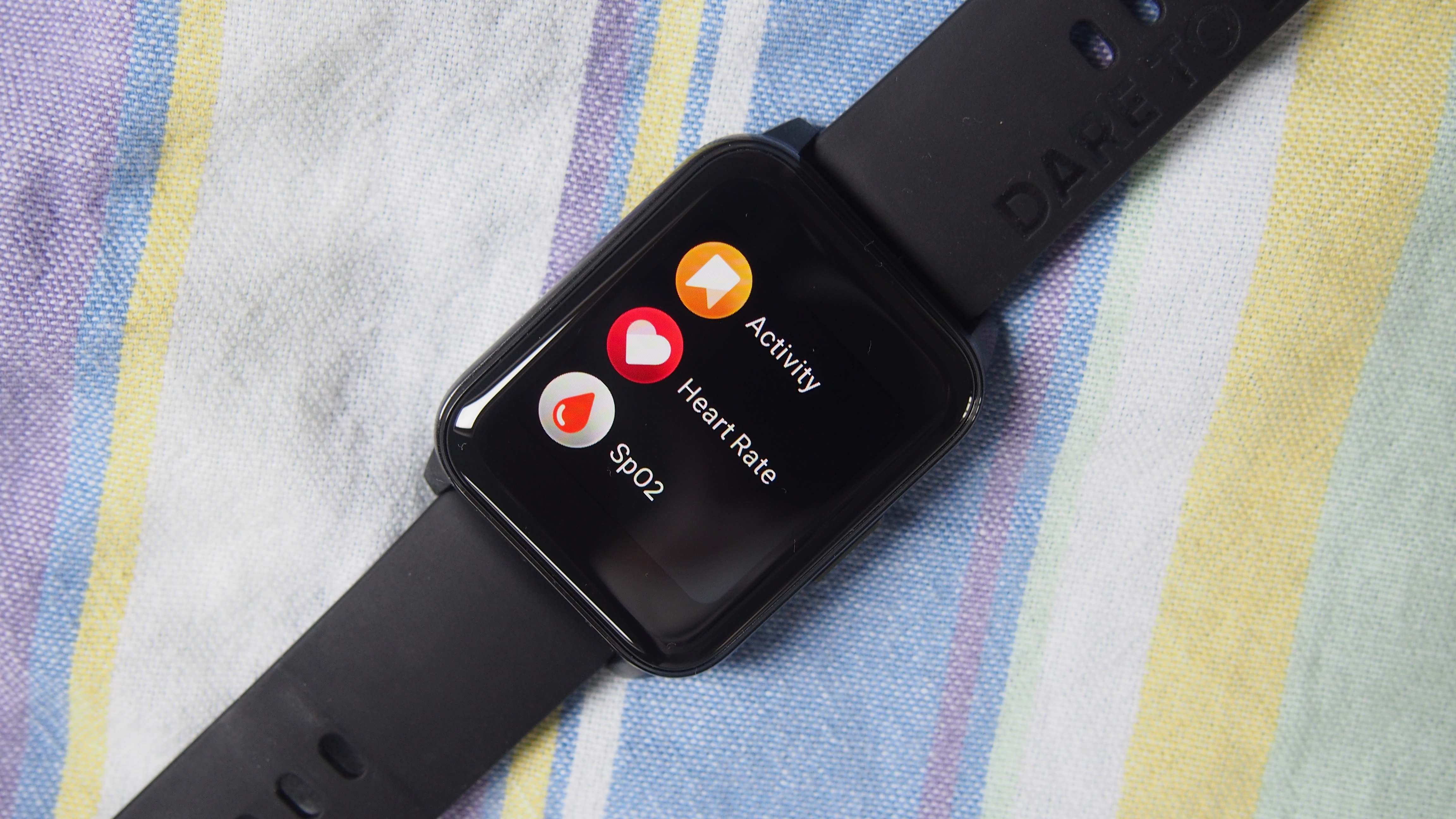
Using the Watch 2 as an activity tracker, you can track daily steps, calorie burn, exercise minutes and hours you’ve stayed active for during the day. There’s inactivity alerts to make sure you keep active over that day by clocking up some steps to reset those alerts. You’re getting guided breathing exercises on the watch too.
Again, an altimeter doesn’t make the cut, which means you can’t track floors climbed. Accuracy-wise, it tended to be around 500 steps of a Garmin watch on most days but as much as 1,000 steps off the Garmin on other days too.
You’re getting something that can automatically track your sleep time too, breaking down sleep stages and tracking heart rate during sleep. Against Fitbit’s sleep tracking, it did record similar sleep periods but tended to report more deep sleep than the Fitbit. Heart rate during sleep seemed significantly higher than the Fitbit as well.
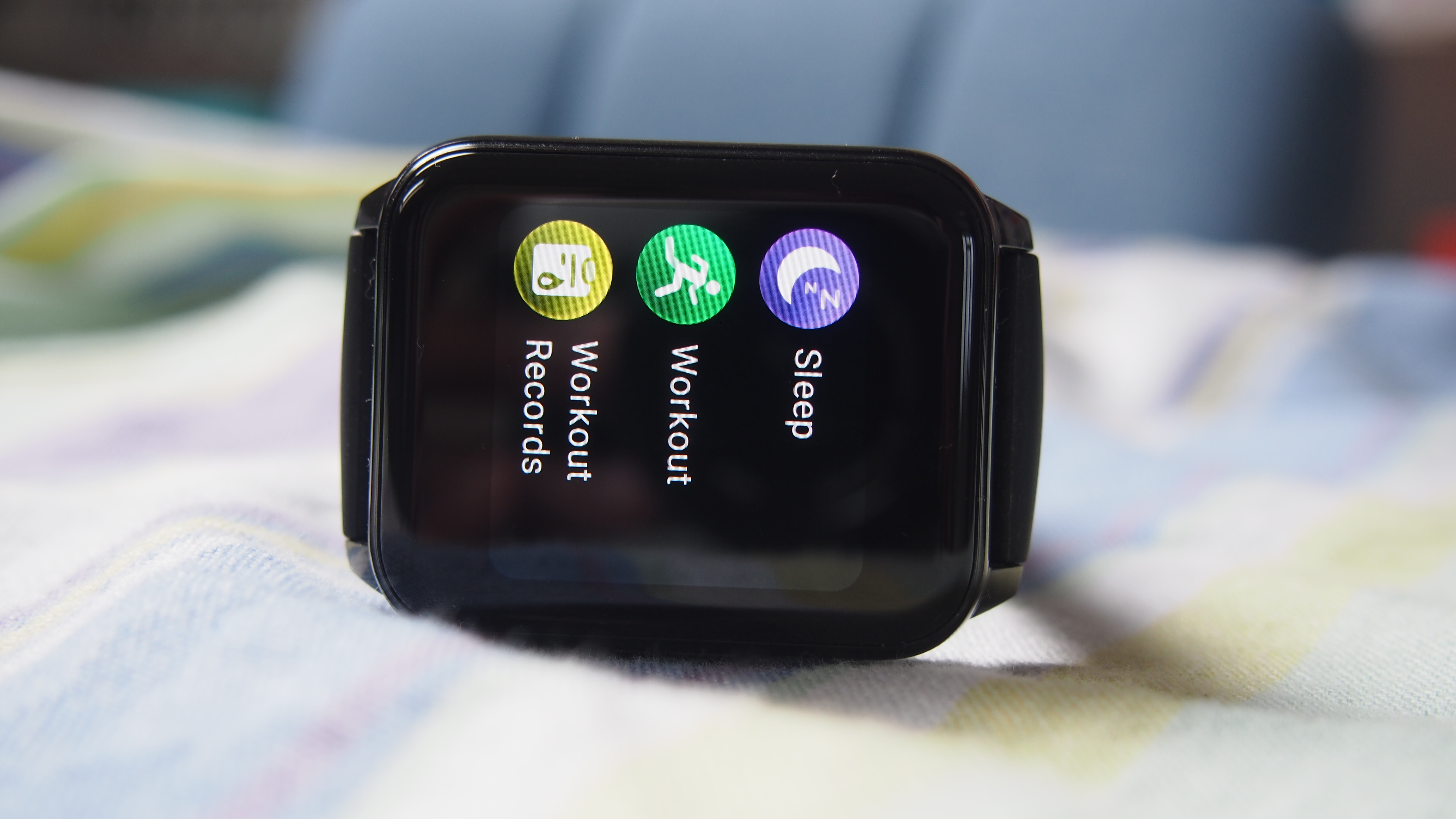
Speaking of heart rate, you can continuously monitor it with intervals ranging from the smallest at five minutes all the way up to 30 minutes. Those shorter interval measurements invariably have an impact on battery life.
We found resting HR, average HR and maximum HR on most days significantly higher than what we got from heart rate monitors on Garmin and Fitbit smartwatches and a chest strap monitor. At times, it was 15-20bpm higher for resting heart rate readings.
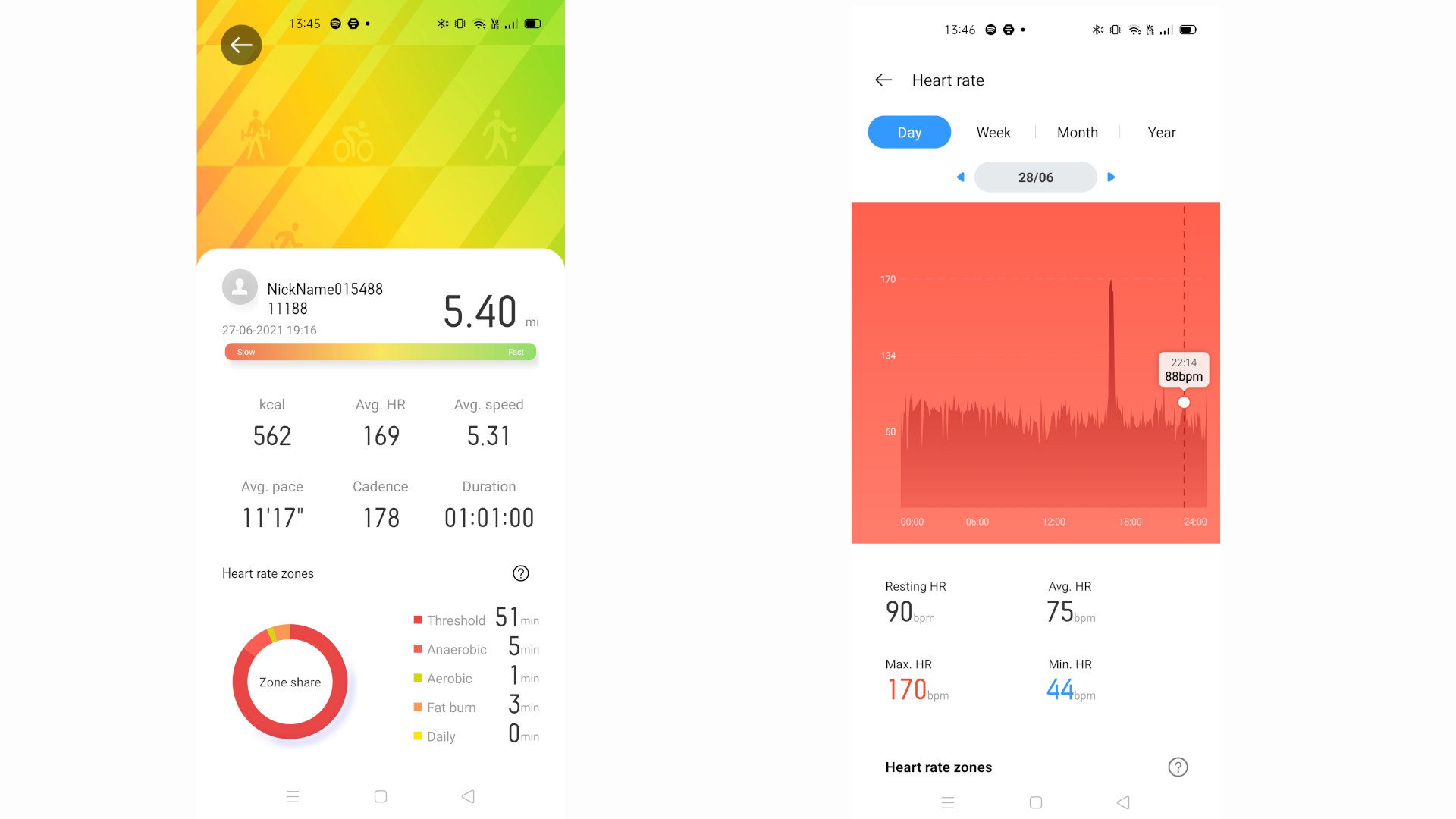
You do also get that SpO2 sensor, which isn’t here for medical uses, but does let you take on the spot measurements, which take roughly a minute and are then synced to the Realme Link app. We put it up against an iHealth clinical grade pulse oximeter and we were happy with the accuracy it delivered on the whole.
There were 14 sports modes on the original Realme Watch, and the Watch 2 offers up to 90, including things like cardio boxing, wrestling, rugby and disc sports. These are essentially just ways to tag activities and still only offer the ability to capture workout duration and heart rate data.
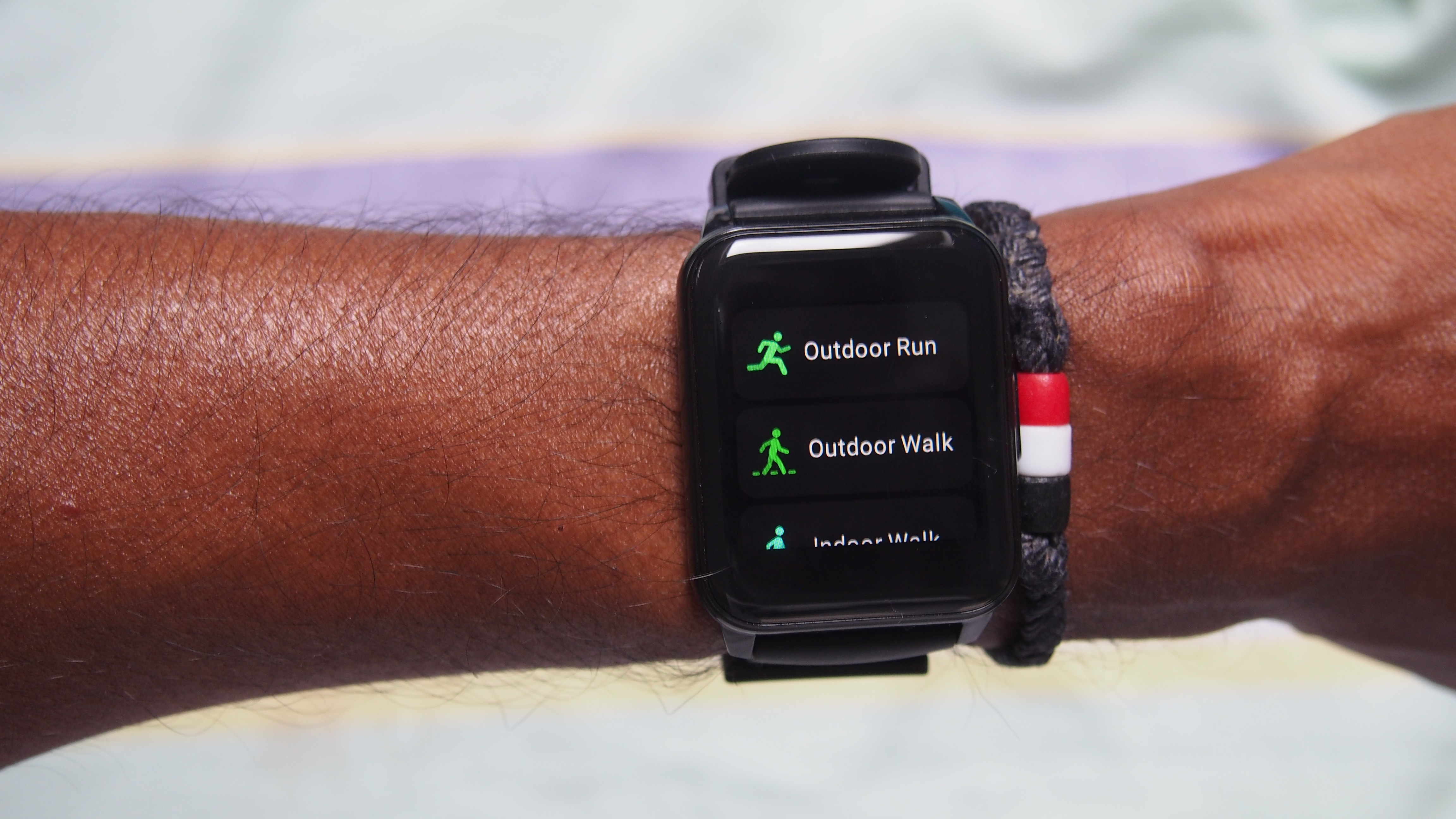
You’ll get more activity-specific metrics from running and cycling. Though based on our indoor and outdoor running experience, it’s not a fantastic tracking companion. There’s no built-in GPS like there is on the new Realme Watch 2 Pro, but you do have connected GPS to make use of your phone’s GPS to more accurately track runs.
In our testing it tended to lose connection with our phone on runs and when it did stay connected, it was well off the pace for distance tracking by a few miles. It was a similar story indoors for a 5k treadmill run, which was a mile off on the distance recorded on the treadmill with a Garmin running watch.
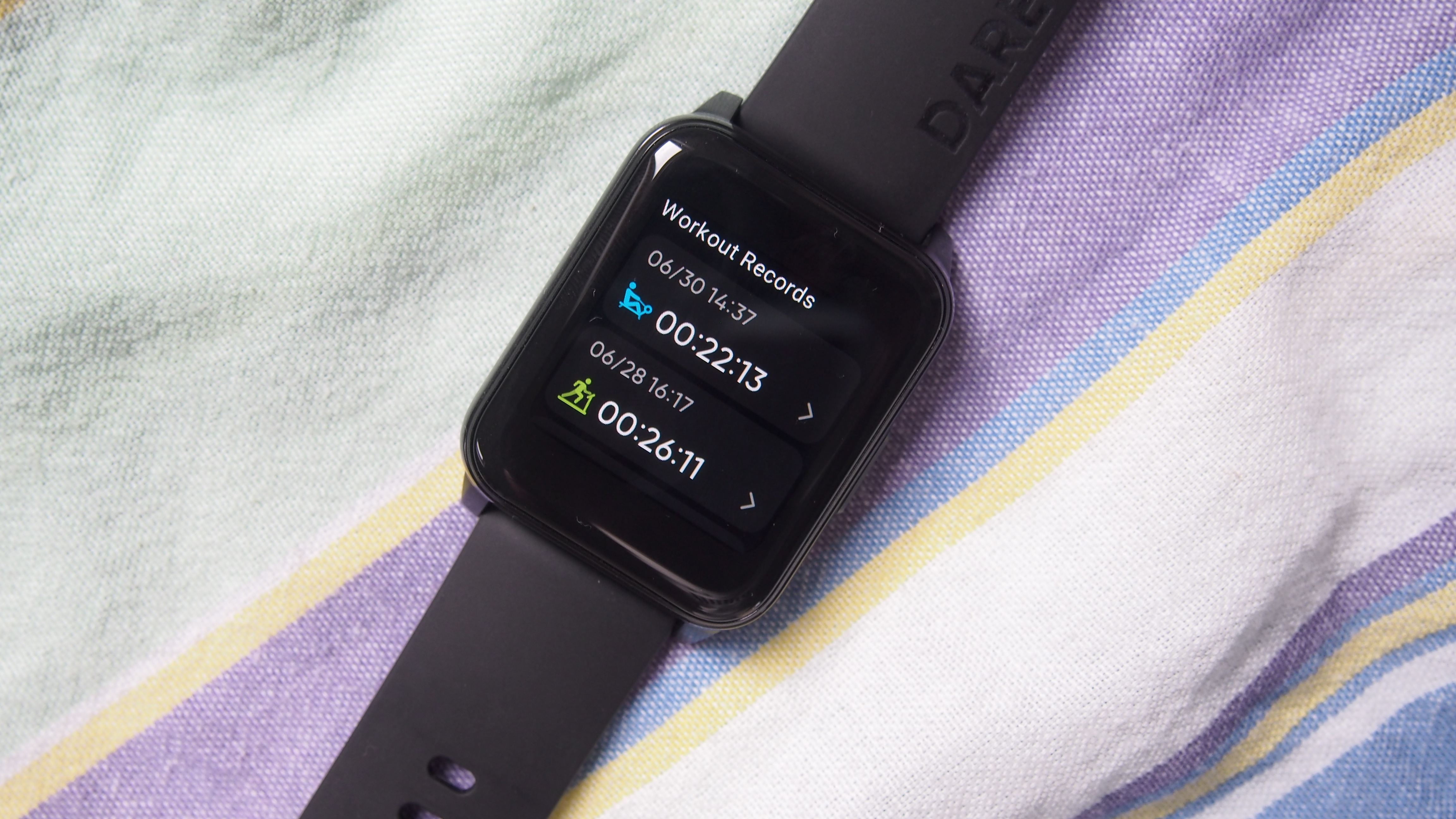
There’s still automatic exercise recognition for running and walking, but we’d recommend taking the manual option to tracking to get the most reliable data.
It was a bit of a mix bag for tracking heart rate during exercise too. For steady paced workouts like indoor rowing sessions, average heart rate was around 5bpm off a chest strap. It was 1bpm off a chest strap for average and maximum heart rate on steady paced outdoor runs, but you’ll find that maximum heart rate data in the daily heart rate screen on the companion app as opposed to the exercise session. It certainly performed better than we expected, but if you’re hoping to really put this to the high intensity test, you might be left disappointed.
Battery life
- 315mAh battery
- Up to 12 days battery life
Realme has made improvements on the battery front, moving from a 160mAh capacity battery to a larger 315mAh one, which promises up to 12 days battery life. That’s up on the seven to nine days promised on the first Realme Watch
We found the battery numbers promised on the original a little on the optimistic side, but we’re happy to say that even with a more impressive display on board, the Watch 2 has solid staying power. We found it dropped around 10% a day, which works out to about 10 days. That was with all features enabled including notifications and tracking some indoor and outdoor workouts.
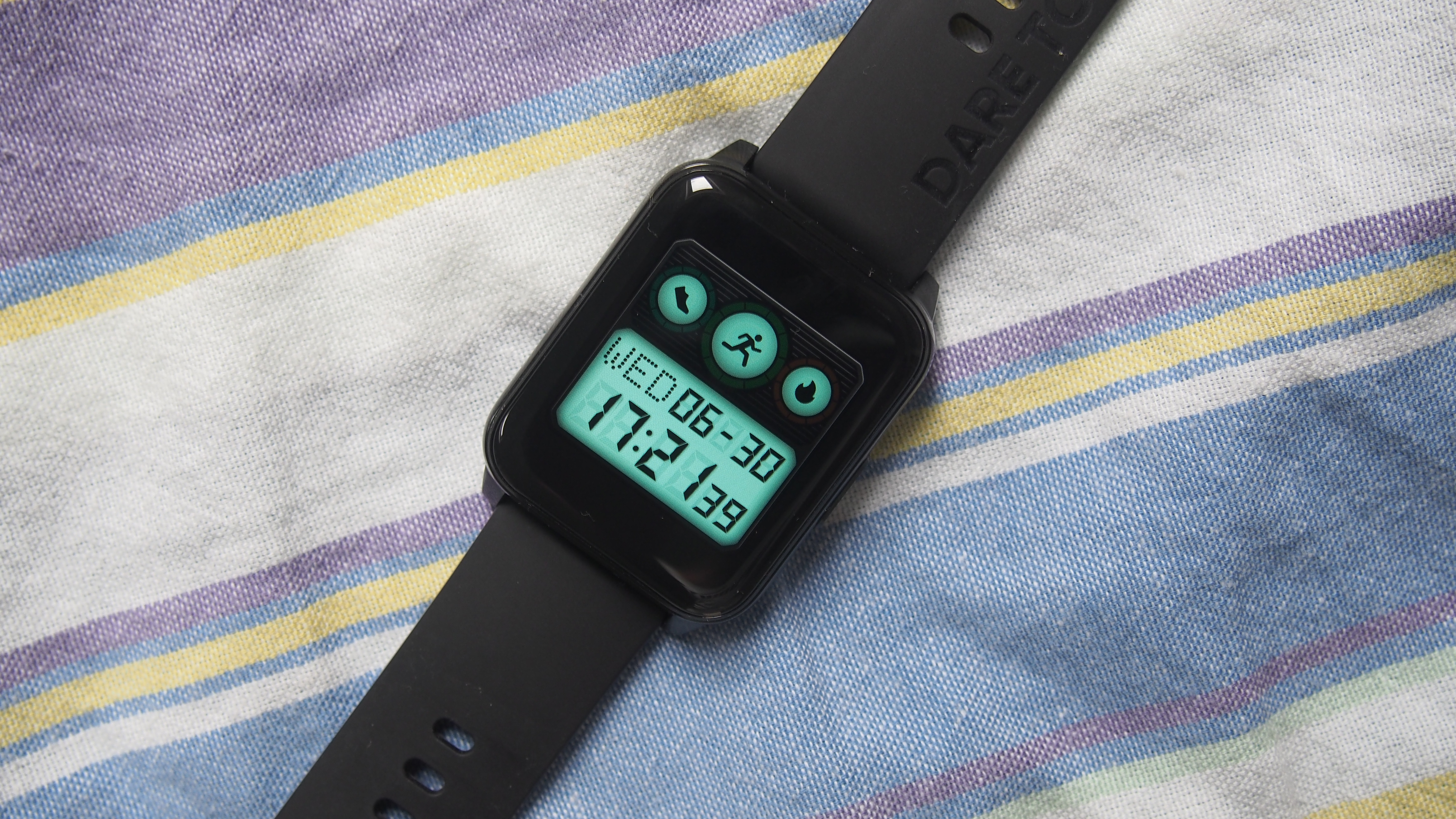
When putting the connected GPS support to the test for over an hour’s worth of running, it only dropped by around 3%. So it seems to hold up well when more typically power intensive features are in use.
There’s still a power saving mode that restricts the watch to displaying the time and how much battery you have to play with. When it’s time to charge, you’ll need to drop it on its charging base, which is a puck-style kind that magnetically clips onto the back to make sure it doesn’t budge when it’s powering back up.
First reviewed June 2021
Buy it if
You want a basic smartwatch with good fitness tracking
While the Realme Watch 2 won’t give you the complete package, it handles notifications well and is a nice watch to track daily activity and sleep.
You don’t want to spend big
It hasn’t budged from that budget price tag, so if you can’t push to spend over $100 / £100 on a connected watch, it’s one to look at.
Don't buy it if
You care about sports tracking
It might offer 90 sports modes, but the core tracking isn’t fantastic and you can spend a little more for a more reliable experience.
You want an attractive smartwatch
While it’s a well built watch, the Watch 2 is all plastic and a very plain Jane in terms of look.
- We've also tested and ranked the best running headphones of 2021
Michael is a freelance journalist who has covered consumer technology for over a decade and specializes in wearable and fitness tech. Previously editor of Wareable, he also co-ran the features and reviews sections of T3, and has a long list of bylines in the world of consumer tech sites.
With a focus on fitness trackers, headphones, running wearables, phones, and tablet, he has written for numerous publications including Wired UK, GQ, Men's Fitness, BBC Science Focus, Metro and Stuff, and has appeared on the BBC Travel Show. Michael is a keen swimmer, a runner with a number of marathons under his belt, and is also the co-founder of YouTube channel The Run Testers.
